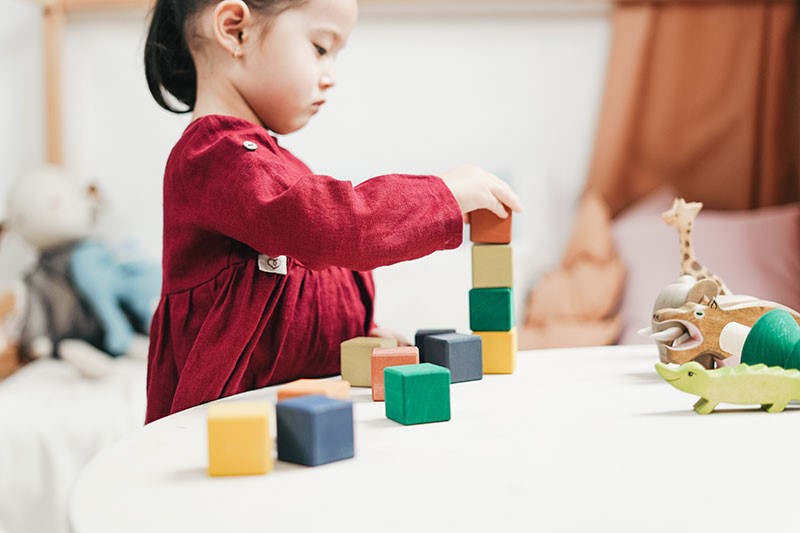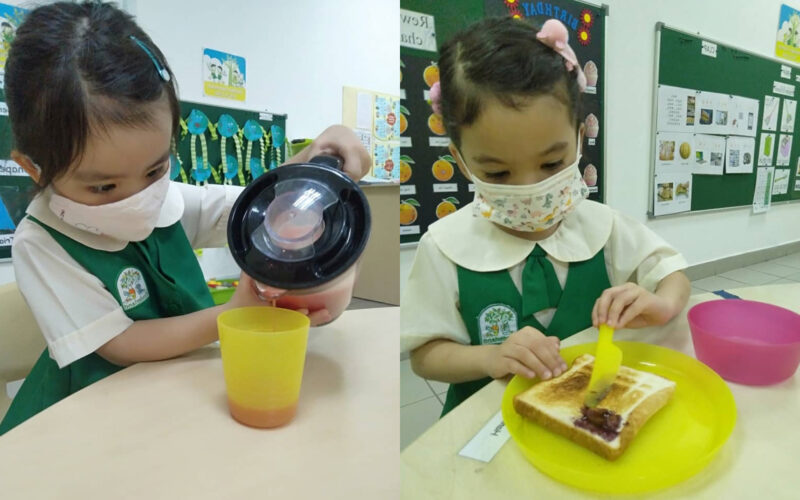
Nurturing capable children is the foundation for self-reliance and self-sufficiency, which is key to what children should possess at the end of the day – for them to grow into successful, independent and happy individuals.
However, parents are often seen as overprotective nowadays, by preventing their little ones from making mistakes. This may inadvertently affect the child’s ability to believe in their own capability.
Building a child’s competency starts from a young age. When provided with the right opportunities, young children desire to master what they do, to show adults that they are capable of completing tasks independently.
Dr Carol Loy, Director of Curriculum and Professional Development, and Ms Charlotte Wong, Infant & Curriculum Specialist at Kinderland International Education share more on how parents can help their children grow up to be capable, independent and responsible.
1. Turn mistakes into lessons
Teach children to view mistakes as learning opportunities instead of failures. For example, if they fall down while playing, they should seek to identify the cause and learn to be more careful in future, rather than stopping play entirely. Through such lessons, they can learn to pick themselves up and take away important life skills such as resiliency and competency.
2. Teach them self-help skills at home
Start off small by letting infants and toddlers master self-help skills such as self-feeding, dressing, hygiene and toileting at home. More skills can be gradually introduced as they grow older. For example, a 15-month-old toddler can be encouraged to help while getting dressed by lifting his or her arms or sliding hands into the armholes, while an older child can be encouraged to take a shower by themselves, with adult supervision.
3.Teach them ownership
When they are old enough, let children take ownership on aspects of their daily routines. Being responsible for tasks such as setting their own alarm clocks, picking out their clothes for the next day, or packing their bags for school can help children value their independence, and discover what they are capable of in a safe environment.
What to look for when choosing a school

The school’s curriculum should instill a sense of responsibility and independence in children, and prepare them for the next step in life by building their confidence in attempting and completing tasks. At Kinderland, building self-help skills is an integral part of the curriculum that promotes the development of competent children.
For infants and toddlers, Kinderland’s “Independence for Confidence” curriculum details simple achievable daily skills, such as toddlers being encouraged to help during baths and diaper changing by identifying and bringing their own bath bags to the shower area.
Ultimately, nurturing a child’s capability is part and parcel of instilling responsibility in them which not only raises their self-confidence, but also encourages them to take risks and try new things, moulding them into self-assured, capable adults.
The school’s curriculum should instill a sense of responsibility and independence in children, and prepare them for the next step in life by building their confidence in attempting and completing tasks. At Kinderland, building self-help skills is an integral part of the curriculum that promotes the development of competent children.
For infants and toddlers, Kinderland’s “Independence for Confidence” curriculum details simple achievable daily skills, such as toddlers being encouraged to help during baths and diaper changing by identifying and bringing their own bath bags to the shower area.
Ultimately, nurturing a child’s capability is part and parcel of instilling responsibility in them which not only raises their self-confidence, but also encourages them to take risks and try new things, moulding them into self-assured, capable adults.
